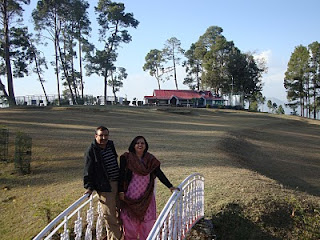
I am extremely happy that the budget this time has been armed with long term impact initiatives and the government had the courage to make a move that may not be politically rewarding. The good part was the income tax reduction which reappears (& is nullified) later in form of various cesses when people consume goods. The sore points amongst the general population are: withdrawal of tax breaks meant for the recovering economy (for the export sector, industries) withdrawal of subsidies in fertilizers and fuel. Jumping back to my perspective, people ask me why a die-hard petrol head like me is happy with the fact that petrol is getting dearer. After all, it has definitely taken a toll on my road trips and eventually my euphoria. However, I always found the subsidies on fuel benefiting the wrong category of people. Here’s a simple fact: the capital spent on fuel subsidy has been greater than the Nation’s health and education expenditure. While the latter are meant to benefit the masses, the petrol subsidies were predominantly enjoyed by the rich or the urban middle class.

Again an argument arises that this kind of subsidy saw a lot less of corruption than the state programs on health, education, the national rural unemployment scheme, the fertilizer distribution, etc. I was dumbfounded by this aspect initially. But with time, the Government has rewarded my faith with several other actions. The proposal of cancelling the subsidy on fertilizers and going ahead with a direct material distribution system is heartening. Such measures are bound to cut middlemen, replace cash flow with material flow and subsequently reduce corruption. In the same lines, a leader from the IT industry was invited to oversee the setup of the national-ID project. Once implemented, this system has the capacity to resolve a handful of issues. Fair ration distribution system, homeland security, taxation, the list is endless.

The Government’s latest fad of inviting renowned and proven industry veterans to optimize and create better systems has been taken positively by the society. My happiness knew no bounds when a high official from the centre invited a close relative to implement a new, better NREGS (rural unemployment scheme) system to improvise distribution and uproot corruption. It took some time to choose between the greener pastures of the corporate sector and the opportunity to serve the nation to make a bigger impact. Eventually the value of work won over the rewards (did the holy Gita have an influence here? We’ll never know!). Sustainable growth might well be an answer to a number of problems: unemployment, exports, wealth creation, security and even naxalism. Naxalism??!! Yes, Swami Ankleswara Aiyar convinced with his latest article linking industrial growth in Andhra Pradesh and drop in activities of anti-state elements.

On the darker side, the slow death of the Bt brinjal saddens me. God knows we badly need a second green revolution and time has proved that the politically safe- subsidy based system has failed us. With majority of the population still producing and sharing a small percentage of the GDP with agriculture, an overhaul is badly needed. If the current scenario prevails, we are encouraging the rural population to head for the already burdened cities. The concept of technology in agriculture could have been received better by petty politicians and activists who created a hue and cry on the Bt. brinjal without having any solid theory to back their opposition. To be honest, even I don’t like the idea of consuming hybrid vegetables but in the long run, I don’t see many other options.
As an economist aptly quoted: “Can sound economics go hand in hand with sensible politics?” Let’s hope for the best. We can only wait and watch.




























